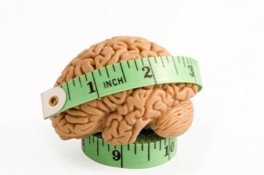Grow Your Brain
Filed in: Grow Your Brain
Does our brain stop developing in adulthood? How do our experiences affect our ability to grow and change?

Humans have the longest childhood of any animal on the planet. Since children are very vulnerable in the wild, there must have been a large evolutionary payoff in giving the brain an extended period of intense development. Of course, learning continues after childhood; we continually acquire new skills and knowledge all the way into old age. (After he turned 90, my dad made my jaw drop with an article in which he calculated te best odds for different bids in bridge: there are lots of similar examples.)
The brain’s capacity to learn -- and thus change itself -- is called neuroplasticity. Usually, the results are tiny, incremental alternations in neural structure that add up as the years go by. Occasionally, the results are dramatic -- for example, in blind people, some occipital regions designed for visual processing can be rezoned for auditory functions (Begley 2007).
Because of all the ways your brain changes its structure, your experience matters beyond its momentary, subjective impact. It makes enduring changes in the physical tissues of your brain which affect your well-being, functioning, and relationships.
Based on science, this is a fundamental reason for being kind to yourself, cultivating wholesome experiences, and taking them in.
**Learn more from the source - the promise of Rick Hanson’s latest book, Buddha’s Brain: The Practical Neuroscience of Happiness, Love, and Wisdom joins modern science with ancient teachings to show you how you can change your brain and change your life. Buy it! Read it! You’ll love every word...
src="http://pagead2.googlesyndication.com/pagead/show_ads.js">
0 Comments




